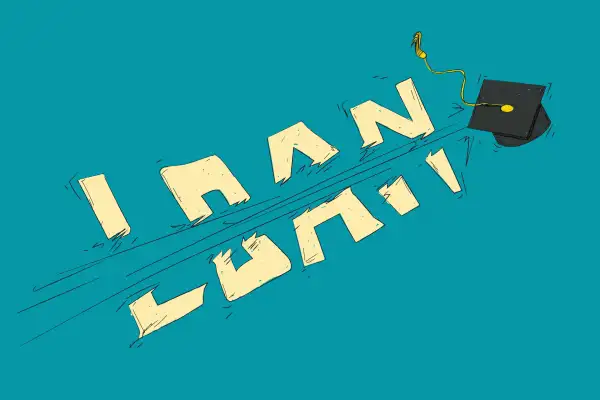The Duty of Credit Rating in Protecting Local Business Loans for Business Owners
In the competitive landscape of entrepreneurship, protecting a little organization finance often hinges on the critical element of credit history. These ratings work as a numerical representation of an entrepreneur's creditworthiness, influencing loan providers' decisions and the terms supplied. A higher debt rating can open up doors to beneficial finance problems, while a reduced rating might present considerable obstacles. What specifically affects these ratings, and exactly how can business owners strategically boost them to improve their possibilities of protecting essential funding? The response to these questions hold the secret to opening prospective development possibilities for small businesses.
Understanding Credit History
Credit rating are crucial mathematical representations of a person's creditworthiness, functioning as a pivotal aspect in monetary decision-making for loan providers. These ratings are originated from a thorough evaluation of an individual's credit rating, incorporating aspects such as payment background, credit history use, size of credit rating, new credit scores accounts, and kinds of credit scores utilized. Typically varying from 300 to 850, greater ratings indicate lower threat to lenders, while reduced ratings show greater threat.
The computation of debt scores is executed by credit rating bureaus making use of exclusive algorithms, with the most extensively recognized models being FICO and VantageScore. Each design might evaluate elements a little differently, however they all objective to offer a regular procedure of debt threat. A strong credit history mirrors the individual's integrity in handling financial obligation, making prompt settlements, and preserving a healthy and balanced equilibrium between credit used and available credit scores.
It is very important for people and company owner to comprehend their credit history, as these figures can have far-reaching ramifications past personal financing. Frequently keeping track of one's debt record, fixing errors, and adopting sound economic behaviors can considerably enhance credit score scores, therefore boosting the individual's general financial profile and credit reliability.
Significance for Funding Approval
Understanding one's credit scores score is fundamental, as it plays a substantial role in the procedure of funding approval for small services. Lenders make use of credit score scores as a primary metric to analyze the creditworthiness of candidates.
As tiny services usually call for timely access to funds for growth and sustainability, keeping a robust credit history score ends up being essential. Thus, understanding and handling one's credit report rating is an essential element of preparing for loan applications and achieving company success.
Factors Influencing Scores
Numerous elements add to the determination of a credit report rating, each playing a pivotal function in shaping a person's credit report profile. A high proportion of made use of credit rating to available credit report can recommend financial overextension, detrimentally influencing credit reliability.
Length of debt history likewise factors right into credit rating estimations, with a longer credit report generally seen extra favorably. This metric gives understanding into the individual's long-lasting financial actions, using lending institutions a broader viewpoint on their credit scores monitoring skills. Additionally, the sorts of credit report being used are taken into consideration, as a mix of credit rating accounts, such as revolving bank card and installment financings, can demonstrate the capacity to manage different economic obligations.
Finally, recent credit history queries might affect ratings (pre approval student loans). Frequent applications for brand-new credit report can indicate economic distress, thus adversely influencing the rating. Each of these elements is essential in the thorough analysis of a credit rating score, impacting an entrepreneur's capacity to safeguard a little company finance
Improving Your Credit History
Boosting one's credit history rating is comparable to nurturing a yard; mindful attention to vital areas can produce significant renovations. Repayment background comprises a considerable section of a credit report rating; thus, setting up automated repayments or reminders can assist preserve uniformity. High credit use proportions, or the quantity of credit scores made use of family member to the credit history limitation, can adversely influence scores.

Last but not least, keeping older credit score accounts can favorably affect the average age of credit scores, which is another consider racking up models. While brand-new credit scores questions need to be lessened to stay clear of temporary rating dips, liable credit rating management in time will normally result in score renovation, therefore boosting qualification for beneficial bank loan terms.
Alternate Financing Alternatives
Business owners with less-than-ideal credit history scores might locate these options not just a lot more obtainable however likewise customized official source to their special business requirements. These platforms normally provide quicker authorization processes and more versatile terms than conventional banks, typically considering aspects beyond debt scores, such as service performance and money flow.
An additional sensible option includes crowdfunding, where business owners can raise resources from a big pool of small capitalists using platforms like Kickstarter or Indiegogo. This method not only offers funds yet likewise validates service ideas via straight interaction with potential customers. Additionally, microloans, often provided by nonprofit companies, provide to small companies and startups. They offer smaller loan quantities with lower rates of interest, making them optimal for business owners who require minimal funding.
Billing funding and seller cash loan are also worth taking into consideration. The previous involves selling superior invoices to a loan provider at a discount rate, while the latter offers a bear down future sales. Both choices can improve capital without the rigorous credit report requirements of typical finances.
Conclusion

These ratings are derived from a comprehensive evaluation of an individual's credit report background, encompassing elements such as payment history, credit utilization, size of debt history, new credit rating accounts, and types of debt utilized (pre approval student loans). A strong debt rating shows the person's integrity in taking care of financial obligation, making timely payments, and preserving a healthy and balanced equilibrium read this article between credit rating made use of and available credit

 Danny Tamberelli Then & Now!
Danny Tamberelli Then & Now! Luke Perry Then & Now!
Luke Perry Then & Now! Heath Ledger Then & Now!
Heath Ledger Then & Now! Karyn Parsons Then & Now!
Karyn Parsons Then & Now! Bill Cosby Then & Now!
Bill Cosby Then & Now!